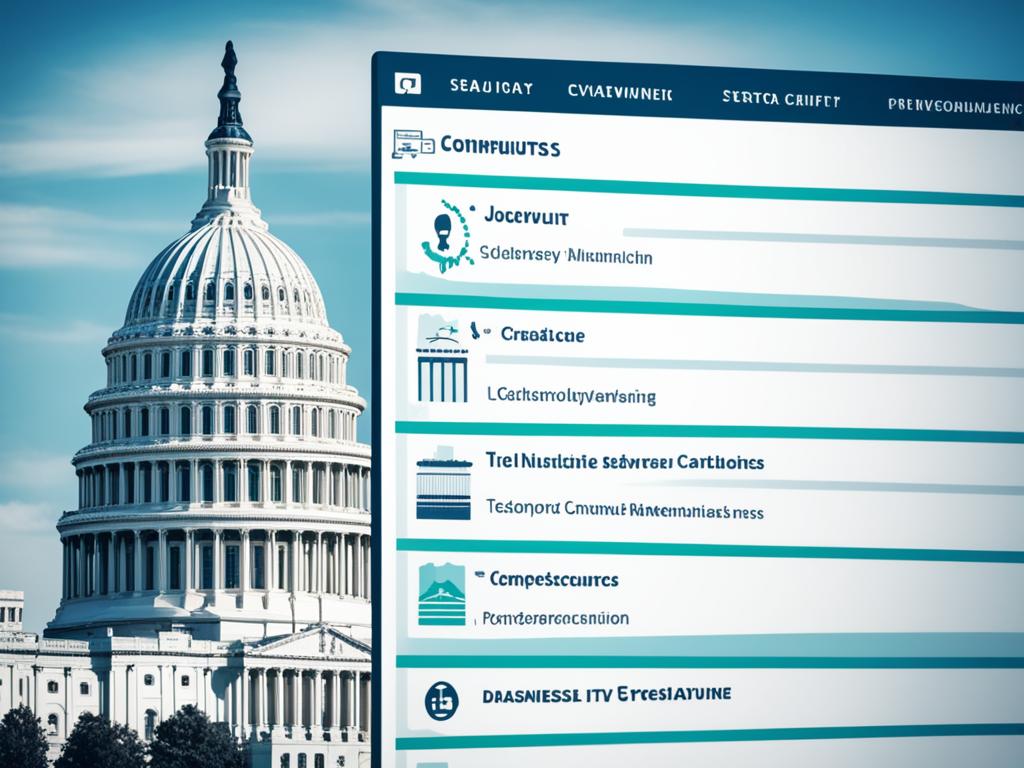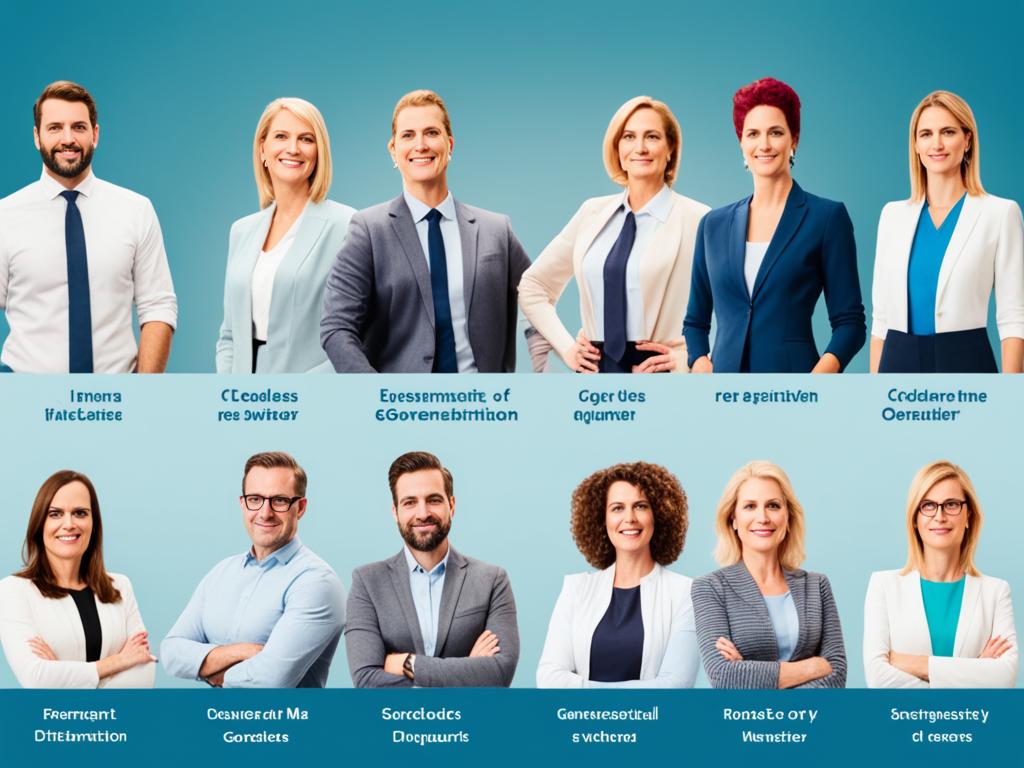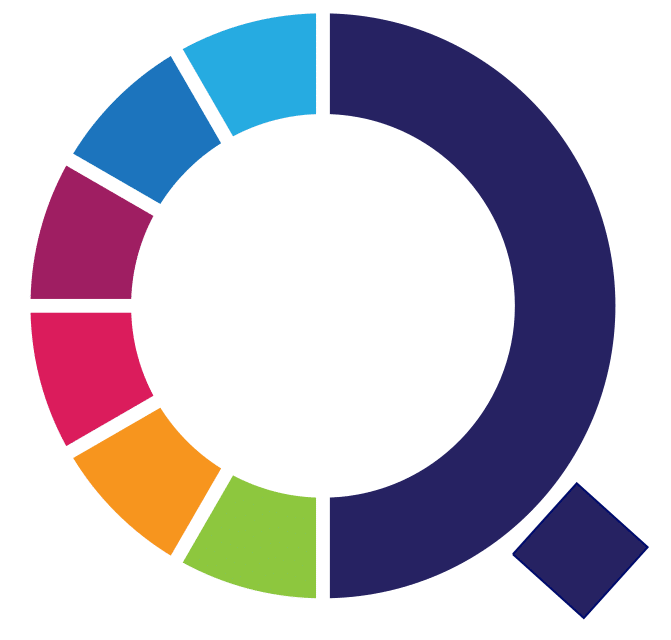I’ve always wanted to make a difference with technology. It’s not just about the job or status. It’s about making the world better. When I learned about IT jobs in the US government, I was hooked right away.
The government sector lets me use my skills for big challenges. We can improve how the government serves people and keep our country safe. Being an IT pro here means you’re helping the nation and building its future.
Government work has its own set of challenges, like red tape and tight budgets. But the impact you make is huge. Knowing your work touches people’s lives is an amazing feeling.
So, let’s look into IT jobs in the US government together. We’ll explore the chances, the hurdles, and the exciting paths forward. Whether you’re starting out or thinking of switching to the government, this article has tips to help you reach your goals. (if you are in a rush, I’ve put the link to the US government website at the FAQ section down below. Click here to head on straight to that section)
-
- IT jobs in the US government let you make a meaningful impact and serve the common good.
-
- Working in the government lets IT pros help the nation and influence its future.
-
- Despite hurdles, the rewards in the government sector make your work truly valuable.
-
- This piece will share useful info and tips for anyone interested in IT roles with the US government.
-
- If you’re starting or switching careers, this article offers advice for success in the government sector.
The Growing Importance of Technology in Government Operations
Today, technology plays a key role in how governments run. IT allows them to offer better and faster services. It also helps in cutting down on paperwork. More and more, technology is changing how our governments serve us.
The Role of IT in Modernizing Government Services
IT is making government services easier to use and more available. Through digital tools, accessing services like taxes or permits is a click away. This change also cuts down on time and paperwork for everyone involved.
Automation and AI: Shaping the Future of Government Work
Automation and AI are huge in the government sector. They automate simple tasks, giving staff more time for complex work. For instance, AI chatbots help people find information online. This helps government workers to focus on important tasks and serve us better.
Adoption of Digital Platforms and Their Impact on IT Employment
The use of digital platforms has increased the need for IT workers. Jobs that deal with digital security and big data are popular now. This trend is great for those wanting to start a career in government tech.
As a result, the government is looking for IT experts. They especially need those with skills in programming and cybersecurity. The shift to digital platforms is opening doors for many IT professionals in the government.
| Benefits of IT Jobs in Government Departments | Challenges of IT Jobs in Government Departments |
|---|---|
|
|
Current Landscape of IT Job Government Opportunities
The US government has many IT job opportunities. These roles are becoming more critical due to the rise of technology in the government. We will look into the types of IT jobs available, their demand, and how they can lead to career growth.
Government services depend more on technology. This creates a growing need for IT experts. These experts, like cybersecurity specialists and software developers, help government systems run smoothly. They also ensure high-quality services for citizens.
Working in the government IT sector offers stability and security. Jobs come with good pay, benefits, and chances for growth. This makes them attractive for many IT professionals.
“Working in the government sector has been a fulfilling experience for me. The opportunities to make a meaningful impact through technology are endless, and the work environment is collaborative and supportive.”
– John Smith, Senior IT Analyst, Department of Homeland Security
The government IT sector has a variety of jobs for different skills and experience levels. It includes positions from software developers to IT support staff. So, both beginners and experienced professionals can find jobs that match their skills and interests.
IT roles are spread across various government departments. For example, finance, healthcare, defense, and transportation. Each department has specific technology needs, creating opportunities for specialized IT professionals to contribute.
To show the broad range of IT job opportunities in the US government, look at this table:
| Department | IT Job Roles |
|---|---|
| Department of Defense | Cybersecurity Analyst, IT Project Manager, Network Engineer |
| Department of Health and Human Services | Data Scientist, Health IT Specialist, Systems Analyst |
| Department of Transportation | Software Developer, GIS Specialist, IT Support Specialist |
| Department of Finance | Financial Systems Analyst, Information Security Officer, Business Intelligence Analyst |
The need for IT professionals in the government will grow. The government is pushing for digital transformation and innovation. This creates many opportunities for those in the IT field within the US government.
If you’re looking for a new challenge or just starting out, consider IT jobs in the US government. The variety of jobs, benefits, and chances for growth make it a promising career choice for IT professionals.
Mapping Opportunities: IT Jobs in Government Departments
Looking to start or advance your IT career? Government departments have lots of exciting roles. You can find the perfect job, no matter if you’re a seasoned pro or just starting out. There are IT jobs that fit your skills and passions.
High-Demand IT Roles in the Public Sector
In today’s digital world, specific IT jobs are very popular in government. These positions need deep know-how to keep key systems running smoothly. Such jobs include being a Software Developer, Data Analyst, Network Administrator, Cybersecurity Specialist, or System Administrator.
Government IT Jobs for Experienced Professionals
If you’ve worked in IT before, consider a government job. You can apply your skills to important projects. Government departments need IT Project Managers, Database Administrators, IT Consultants, Cloud Architects, and IT Security Managers.
Entry-Level IT Government Prospects for Graduates and Freshers
Just graduated or looking for your first IT job? The government has entry-level positions ready for you. These jobs offer real-world experience and a chance to contribute. You could start as a Junior Software Developer, IT Support Specialist, Business Analyst, Quality Assurance Tester, or Technical Writer.
Whether you’re a longtime IT pro or just starting, government IT jobs offer fulfilling work. You can make a real difference with these opportunities.
Policy and Government: The Intersection of IT and Legislative Challenges

In the US government, IT professionals face unique challenges with laws. IT and policy are key for creating government rules and using tech to solve problems.
They must make sure their tech follows the law and is private. They work with laws and talk to lawmakers about their tech projects.
Government rules mean IT pros must keep things very private and safe. They must let people use data but also protect secrets. The law changes, so they have to keep up.
As an IT pro in government, staying up to date with laws is key. It helps avoid problems and make sure you follow rules.
Working together is crucial for making tech in line with what the government aims for. They need to know government goals and use tech well for public services.
People in IT and policy can help make new tech rules that push for innovation. They can suggest what tech to use that helps the government get better.
Knowing tech and laws is very important for IT pros in government. It helps them solve problems, work well with policy makers, and make real changes in tech for the government.
By using their tech skills well and working with policy makers, IT professionals can make a difference. They can help set up policies that encourage new tech, keep data safe, and offer better services to people.
“IT job in US government”: A Deep Dive into Federal IT Career Paths
Working in the US government presents many rewarding IT career paths. These paths let IT specialists apply their knowledge to improve how the government works. This is a chance to play a vital role in the country’s operations.
Federal agencies offer a diverse array of IT jobs. They fit various interests and expertise levels. You can find roles in areas like cybersecurity, software development, and data analysis. There are also positions in system administration and project management.
Cybersecurity is a top career path in the federal government. Protecting government data is crucial, and it needs skilled professionals. These experts work on securing networks, assessing risks, and managing cyber threats.
Software development is another big area within government jobs. Developers create and maintain important applications and systems. They need strong programming skills and software knowledge to ensure everything runs smoothly.
Data analysis is key for IT careers in government. Agencies use data to make decisions and policies. Data analysts and scientists find insights, create reports, and build models to support this work.
System administrators help keep the government’s IT running. They look after networks, software, and hardware. Providing support to users and securing systems are also part of their job.
Project management is essential for IT work in the government. These managers oversee projects to ensure they meet goals, stay on time, and on budget. They work with teams across the government to get things done.
Federal jobs in IT also offer ways to grow and advance. Training and development programs help employees learn new skills. This can lead to promotions, more challenging roles, and the opportunity to lead.
In summary, federal IT jobs are stable and impactful. They offer a range of roles for IT experts to choose from. Whether your interest is in cybersecurity, software, or data, there’s a job that can meet your career goals.
Emerging Technologies and Skill Requirements in Government IT Jobs
In today’s world, new technologies are changing government IT jobs. IT experts in government jobs need to keep up with new tech and learn new skills. This is important to adapt to their changing job requirements. We’ll look at how generative AI is impacting federal IT jobs, why upskilling is crucial, and the effects of remote work on these roles.
The Impact of Generative AI on Federal IT Occupations
Generative AI may change many aspects of IT jobs in the government. This tech allows machines to create content on their own. It makes work more efficient, but it also comes with challenges like data privacy and bias. IT workers in the government must learn to use this new tech. This way, they can benefit from it safely while avoiding any risks.
Upskilling: Preparing for the IT Jobs of Tomorrow
Technology is moving quickly, and so are the skills needed for government IT jobs. IT workers must keep their skills sharp to stay competitive. This means learning new programming languages, cybersecurity practices, data analysis methods, and more. Investing in learning and development is key. It can lead to career growth and open new opportunities in IT.
Remote Work and Its Implications for Government IT Roles
The COVID-19 pandemic made remote work more common in the government. Working from home has benefits like flexibility and reaching more talent. But it also makes some things harder for government IT roles. These challenges include keeping data safe, working together effectively, and managing projects from afar. Government IT workers need to adjust. They should learn how to be successful in remote settings while making sure they follow all government rules.
From Local to Federal: IT Jobs Local Government vs. Nationwide Opportunities
We looked into the varied IT job scene within the US government. We saw roles in various departments. Now, let’s see how IT opportunities differ between local and federal governments across the nation.
Tackling Geographic Mismatches in IT Workforce Demand
One big issue for IT experts is the demand for their skills not matching where they live. IT roles in local governments are usually found in certain areas. This is based on the needs of the local area. Yet, these local jobs can be harder to find compared to jobs in the federal government.
Comparative Analysis of Local and Federal IT Career Prospects
Let’s look at the major differences in career paths between working for the local and federal government:
| Aspect | Local Government IT Jobs | Federal Government IT Jobs |
|---|---|---|
| Job Availability | Jobs available in local government depend on the size and needs of the area. Small municipalities might not have as many IT jobs. | Federal roles offer more jobs. They are spread across diverse departments. This means more job chances for IT professionals. |
| Salary Potential | Salary in local government varies based on budget and living cost. It’s usually competitive. But, federal jobs might pay more. | Federal jobs come with competitive salaries and great benefits, which may offer a better income potential to workers. |
| Career Growth | Local IT jobs could lead to growth within the same area. This lets you specialize and contribute directly to local needs. | Federal roles provide chances to grow by working across departments. This brings wider experience and opportunities. |
| Scope of Work | Local IT work is about meeting area needs directly. It makes a clear difference in the community you serve. | Federal roles work on national projects, influencing policies and services across broader areas. |
Deciding between local and federal IT jobs depends on personal goals. Think about what you want in your career and life. Both types of opportunities have their unique advantages and obstacles.
Comparing local to federal IT opportunities helps you make a well-informed choice. Consider your interests and long-term goals in the ever-evolving IT sector of the government.
Career Progression and Professional Development in Government IT Jobs
Understanding how your career can grow in government IT jobs is key. It’s important to keep learning with technology always changing. This includes staying on top of new advancements and earning important certificates.
Navigating the Promotion Process within Government IT Departments
To move up in government IT, you need technical know-how, can lead, and understand your agency’s aims. Showing what you can do, taking on more, and bringing fresh ideas are crucial.
It’s also vital to make good connections and to find expert mentors. They can give you advice and back you up as you aim for higher roles. Getting feedback and being active in your network can help you stand out and move up in your career.
Continuous Learning and Certification for IT Government Professionals
For IT pros working in government, always learning is a must. This keeps your skills sharp and you ahead of changing tech. Joining trainings, webinars, and workshops helps you learn new things and keep up with the latest.
Getting special certificates is also important for your career in government IT. These show you’re skilled in certain tech or methods, which can help you get promoted or find new jobs. Certificates like CompTIA Security+, CISSP, and PMP are well-respected in government IT.
In the field of government IT, keeping up with learning and career chances will lead to success. By knowing the latest trends, getting the right certificates, and aiming for promotions well, IT pros in the government can have a great and meaningful career.
Challenges Facing IT Professionals in the Government Sector
Government IT jobs are constantly changing, bringing unique challenges. Cybersecurity and a lack of skilled workers are two major issues.
Addressing Cybersecurity Concerns and Talent Shortages
Cybersecurity threats in government jobs are on the rise. Organizations must protect vital data against complex attacks. IT experts are key to this effort, keeping defenses strong.
In the government IT realm, finding skilled workers is difficult. The need for tech experts outstrips the number available. This gap affects the sectors’ efficiency and the quality of its services.
Agencies are tackling these issues with creative solutions:
-
- Offering competitive salaries and benefits to attract skilled IT professionals
-
- Providing ongoing training and chances for skill enhancement
-
- Collaborating with schools to offer specialized IT training
-
- Building ties with private firms to share talent
By putting a premium on cybersecurity and addressing the skills shortage, agencies hope to bolster their IT teams. This way, they aim to provide top-notch, secure services to citizens.
The Balancing Act: Public Service vs. Private Sector Opportunities
Those in government IT must weigh public roles against private ones. Each has its own pros and cons.
Government roles let professionals directly help society. Work often centers on crucial public needs, like healthcare improvements and boosting security.
Meanwhile, the private sector can offer bigger paychecks and more career paths. It’s a sector marked by quick industry changes and room for innovation.
The choice between public service and the private sector depends on what a person values and their career goals. Some find deep satisfaction in public roles, while others thrive in the ever-changing private industry.
Inclusivity and Diversity in Government IT Roles

In government IT jobs, inclusivity and diversity matter a lot. It’s key to have a wide range of people working together. This way, we get fresh ideas to make society better. But, not enough women are in these roles yet.
The Gender Gap in Government IT Jobs and Efforts to Close It
There are not many women in government IT roles. Even though things are getting better, the numbers are still low. Having fewer women not only limits fresh ideas. It also holds back equal opportunities and keeps talented folks out.
We’re working hard to change this. There are new policies and programs promoting equality. Organizations are trying to be more open and supportive. They want more women to join the IT field in the government. Here are some of the efforts:
-
- Implementing diversity and inclusion training programs to raise awareness and eliminate biases that may hinder women’s advancement in the field.
-
- Creating mentorship and sponsorship programs to provide support and guidance to aspiring women IT professionals.
-
- Establishing flexible work arrangements and promoting work-life balance to accommodate the needs of women in the workforce.
-
- Encouraging recruitment practices that prioritize diversity and actively seek out qualified female candidates.
These changes aim to narrow the gender gap in government IT roles. With more women joining, we gain from new talent and ideas. It encourages equal chances for everyone.
Creating Equitable Opportunities for Underrepresented Groups
Diversity in government IT goes beyond gender. Everyone deserves a fair chance. This means people from all backgrounds, abilities, and orientations.
Here are ways to make this happen:
-
- Implementing diversity and inclusion initiatives that ensure fair hiring and promotion practices.
-
- Providing mentorship and professional development opportunities for underrepresented groups to support career advancement and growth.
-
- Establishing employee resource groups to create a sense of belonging and foster a supportive network for individuals from underrepresented backgrounds.
-
- Partnering with organizations and institutions that focus on supporting and promoting diversity in the IT workforce.
By welcoming all in government IT, we boost innovation. The mix of ideas and experiences leads to better solutions. This makes the path fair for everyone.
Conclusion
IT jobs in the US government are full of chances for professionals. These include making a big difference in the public sector. Technology plays a big part in how the government works today. So, IT pros help make government services better and shape the future of work.
Working in government IT has its challenges, though. There are issues like cybersecurity and figuring out how to get promoted. To work through these, IT pros need to be smart and strong.
The outlook for IT jobs in the US government is bright. New tech and the need for skilled IT workers are growing. This means more opportunities to work, whether it’s for the nation or a local community. Plus, there is plenty of room to grow in your career.
IT jobs in the US government mix public service with chances to learn and grow. If you love tech and want to change the world, consider working in government IT. It’s a satisfying career choice with real meaning.
FAQ
In the US government, IT roles vary from local to federal levels. These jobs suit everyone, from new graduates to experienced professionals..
Technology is key in making government services modern and efficient. It helps with everything from improving processes to making services better for the public. This leads to a big need for IT experts in the government.
The US government needs many IT experts. This includes software developers, network administrators, cybersecurity specialists, and more. It offers a wide range of career paths.
Head on to here for more information:
Places like the Department of Defense and Homeland Security need many IT professionals. They look for those who can handle complex tasks and keep important data safe.
Yes, new grads can find IT jobs in the US government. These roles help build a strong IT career and offer chances to advance.
IT and policy work closely in the government. IT helps make sure rules are followed and data stays secure. It's vital for shaping government policies.
Federal IT roles offer a lot. You could work in project management, cybersecurity, data analysis, and more. These jobs also allow for career growth within the government.
New tech like generative AI is changing federal IT jobs. IT pros must learn new skills to stay relevant. Also, remote work is becoming more common in government IT.
Local and federal government IT jobs have distinct focuses. Local roles serve a specific community, while federal jobs have a national reach. Each offers unique experiences.
To move up the ladder, IT pros should focus on learning and certification. Keeping up with tech trends is also key. This can boost their chances for advancement.
Challenges in government IT include cybersecurity threats and a lack of skilled workers. This field calls for strong data protection. IT experts must also choose between private and public work.
The government is working to make IT jobs more inclusive and diverse. It's doing so through hiring initiatives and support programs. These efforts aim for a better mix of people in government IT.

